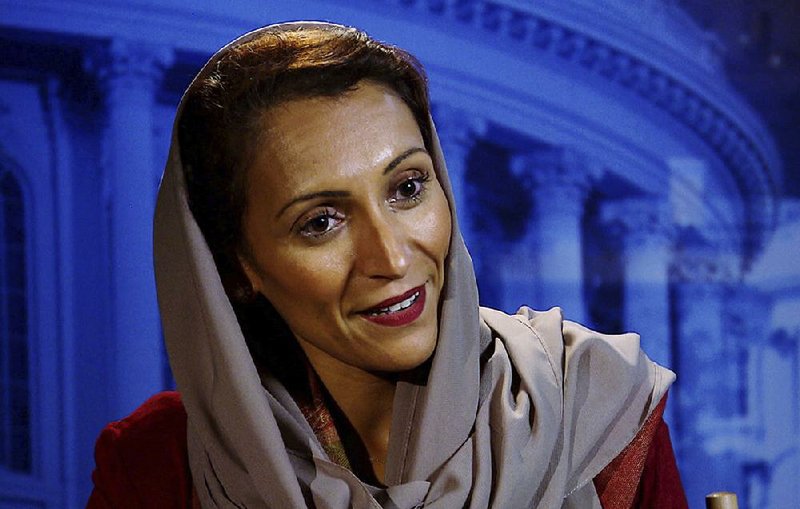WASHINGTON -- As Saudi Arabia strives to portray itself as ready to join the ranks of modern, tolerant societies, the kingdom has turned to a once-unlikely messenger -- one of its daughters -- to make its case to the West.
On Fatimah Baeshen's first day as the Saudi Embassy in Washington's official spokesman, the ultraconservative nation's rulers issued a decree to lift its ban on women driving, starting next summer. It was a step toward erasing what much of the world sees as a stain on Saudi Arabia's women's rights record. Activists are pushing for greater human rights and political freedoms, even with the recent openings for women.
Baeshen, the first woman named to the embassy post, is no stranger to life behind the wheel of a car. The Saudi-born Baeshen spent years living, working and studying in the United States, affording an easy fluency in the routines of American life that many Westerners see as irreconcilable with the country she represents.
"I'm a byproduct of the long-standing Saudi-U.S. relationship," Baeshen said in an interview. "For years, Saudi students have been coming to the United States to study. There are several Saudis that are like me, that are very comfortable and are able to fluidly go back and forth between cultures."
For Saudi Arabia, Baeshen's appointment reflects an opportunity to try to revise a narrative that is sharply at odds with the kingdom's plan to transform itself for the future. In addition to sweeping economic changes, "Vision 2030" calls for easing social restrictions as a younger generation prepares to take the helm.
The kingdom's Gulf Arab neighbors have sprinted toward modernity in recent years, building flashy skyscrapers and attracting foreign tourists, but Saudi Arabia's economic development has lagged. Though the U.S. prizes the close security alliance, Saudi Arabia's restrictive freedoms, its conservative religious clergy and its human-rights record made it difficult for the two countries to claim they had much in common culturally.
Now Saudi Arabia basically is under control of Crown Prince Mohammed bin Salman. The 32-year-old is in line to inherit the throne from his father, King Salman, and is behind ambitious goals to create more jobs for young Saudis, bolster tourism and ease a historic over-reliance on oil revenue after a drop in prices plunged the country into deficit.
The economic overhaul also means folding more Saudi women into the workforce, with an eye toward creating more two-income households and weaning Saudis off reliance on government perks.
As the kingdom works on domestic overhauls, a concerted effort is underway to tell its story more proactively in the West. Its embassy in Washington, considered by many Saudi officials to be their most important overseas post, has stepped up messaging with more social media engagement. The kingdom has spent millions on an aggressive lobbying and public relations campaign targeting Capitol Hill and the American media.
Baeshen is a quick defender of her country's progress, even when faced with sensitive questions. She said gender played no role in her selection. In a recent cable news appearance, she interjected to forcefully challenge several points when the host ticked through a litany of critiques of how Saudi Arabia treats women.
"Women across the board deal with different issues, regardless of where they are," Baeshen said. "The myopic focus of this element I think deters the larger perception of what Saudi women have really been able to contribute."
Information for this article was contributed by Aya Batrawy of The Associated Press.
A Section on 10/19/2017
